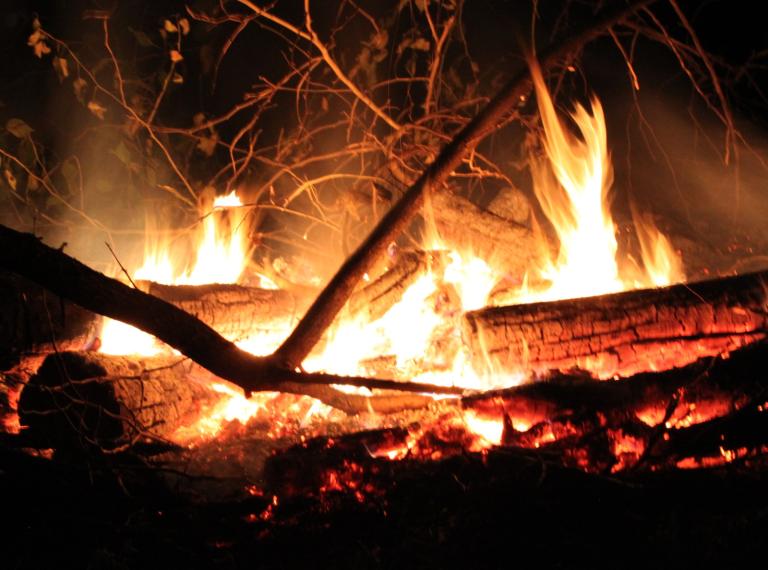I get uneasy any time I find myself starting to say “Paganism is (fill in the blank).” Paganism is many things and as soon as you go making definitive statements, someone else is there to offer a counter example. But I feel fairly confident in saying that modern Paganism is an experiential religion. Paganism isn’t something you believe, it’s something you do. And when you do it just right, when the timing is just right, when the gods are looking favorably on us, the experience can be amazing.
Sometimes the experience is soft and subtle, standing outside bathed in the light of the full moon. Sometimes it’s joyous, dancing the Maypole and welcoming Summer. Sometimes it’s the feeling of belonging that comes from joining hands in a circle and directing our energies toward a common goal. And sometimes it’s the far stronger presence of a deity, calling us and overshadowing us and turning us inside out for reasons that aren’t always clear.
Soft or hard, subtle or overwhelming, it is this experience that gives Paganism its power. Now, it matters what we believe, because what we believe will determine how we interpret our experiences. And it matters what we do, because eventually the religious experience is over and we go back into the ordinary world faced with issues that make our lives and the lives of our fellow creatures far more difficult than they have to be. But in the words of the late great Isaac Bonewits, “it don’t mean a thing if it ain’t got that swing.”
One of the jobs of a priest or priestess is to facilitate religious experiences.
Facilitate: “to make easier, to help bring about.” Not to cause, not to generate, and certainly not to command. To make easier and to help bring about.
We who are priestesses and priests can’t give someone a religious experience. We can’t command a god to appear to them. We can’t even give people a set of clear-cut instructions that guarantee a meaningful encounter.
All we can do is make it easier. All we can do is help.
Sometimes we facilitate a religious experience through ritual. We combine the best from our ancestors with our own insights and we create and present a ceremony that honors the gods and inspires the participants. After a ritual there’s nothing I like hearing more than “I really felt something tonight” or “that really touched me.” The priest is the conduit and not the source, but I get great satisfaction from being an effective channel from the Otherworld to this world.
Sometimes we facilitate a religious experience through teaching. We recommend books and music, workshops and practices. We share the techniques that have worked for us and for others, and we share our mistakes and failures so they aren’t repeated. Eventually the student learns enough and begins to experience the gods, ancestors and spirits on his or her own.
But sometimes we facilitate a religious experience just by being present and by encouraging people to keep practicing even though you never know if that life-changing experience is a day or a month or ten years away. That’s not as glamorous as leading ritual or teaching classes but it can be every bit as important.
If you’re a sworn priest or priestess – if you’ve taken vows to a deity or a tradition or a community – you know it’s not about you. It’s about the deities, traditions and communities you serve. Yes, sometimes you get to be the leader of an amazing ritual. Sometimes you get to dispense just the right sage wisdom. But how many more times are you simply present for someone at a time that’s critical for them, even though neither of you realize it at the time?
Religious experiences happen when individuals are ready and when the gods so desire. All we can do as priests and priestesses is to make them easier, and we do that best when we understand they will come in the way they will come and not in the way we’d like them to come.
Blessed be the gods and ancestors, and blessed be those who seek them.
















